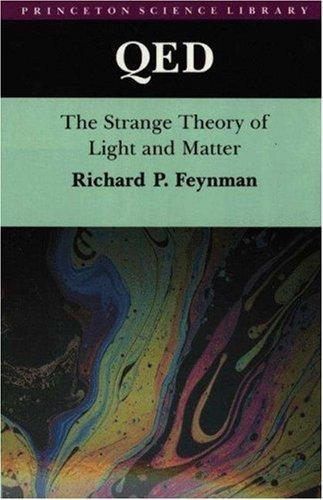152 psl.
English kalba
Publikuota 1986 m. liepos 29 d.

152 psl.
English kalba
Publikuota 1986 m. liepos 29 d.
QED: The Strange Theory of Light and Matter is an adaptation for the general reader of four lectures on quantum electrodynamics (QED) published in 1985 by American physicist and Nobel laureate Richard Feynman. QED was designed to be a popular science book, written in a witty style, and containing just enough quantum-mechanical mathematics to allow the solving of very basic problems in quantum electrodynamics by an educated lay audience. It is unusual for a popular science book in the level of mathematical detail it goes into, actually allowing the reader to solve simple optics problems, as might be found in an actual textbook. But unlike in a typical textbook, the mathematics is taught in very simple terms, with no attempt to solve problems efficiently, use standard terminology, or facilitate further advancement in the field. The focus instead is on nurturing a basic conceptual understanding of what is really going on …
QED: The Strange Theory of Light and Matter is an adaptation for the general reader of four lectures on quantum electrodynamics (QED) published in 1985 by American physicist and Nobel laureate Richard Feynman. QED was designed to be a popular science book, written in a witty style, and containing just enough quantum-mechanical mathematics to allow the solving of very basic problems in quantum electrodynamics by an educated lay audience. It is unusual for a popular science book in the level of mathematical detail it goes into, actually allowing the reader to solve simple optics problems, as might be found in an actual textbook. But unlike in a typical textbook, the mathematics is taught in very simple terms, with no attempt to solve problems efficiently, use standard terminology, or facilitate further advancement in the field. The focus instead is on nurturing a basic conceptual understanding of what is really going on in such calculations. Complex numbers are taught, for instance, by asking the reader to imagine that there are tiny clocks attached to subatomic particles. The book was first published in 1985 by the Princeton University Press.